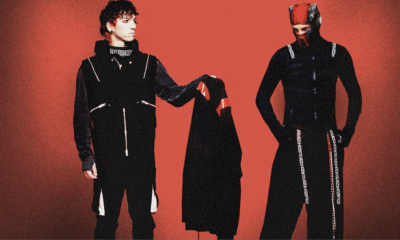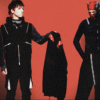Copyright
Ed Sheeran Scores Major Victory as Supreme Court Declines Marvin Gaye Copyright Case
In a landmark ruling that could have far-reaching effects on the music industry, the U.S. Supreme Court on Monday refused to revive a copyright infringement lawsuit that accused global pop star Ed Sheeran of copying Marvin Gaye’s 1973 soul classic “Let’s Get It On” for his Grammy-winning hit “Thinking Out Loud.”
The decision marks the final nail in the coffin for the long-running case brought by Structured Asset Sales, a company owned by investment banker David Pullman, which holds partial copyright interest in the Marvin Gaye track.
Structured Asset Sales alleged that Ed Sheeran, along with Warner Music and Sony Music Publishing, illegally lifted melodic, harmonic, and rhythmic elements from Gaye’s chart-topping single. But both a U.S. District Court and the 2nd Circuit Court of Appeals had previously ruled that the musical similarities were too generic to be protected under copyright law—a position the nation’s highest court has now upheld by declining to hear the appeal.
A Battle of Legends and Legal Boundaries
The legal saga began in earnest after “Thinking Out Loud” peaked at No. 2 on the Billboard Hot 100 in 2015. Ed Sheeran faced backlash from some in the music community who believed the song bore an uncanny resemblance to Gaye’s legendary slow jam. However, in 2023, a separate jury trial involving the heirs of Gaye’s co-writer Ed Townsend ruled in Ed Sheeran’s favor, reinforcing that chord progressions and groove patterns—central to the claim—are not exclusive enough for copyright protection.
Meta Sued for $109 Million Over Alleged Unauthorized Use of Eminem’s Music
Following that victory, Ed Sheeran had expressed frustration with the repeated accusations, telling reporters “It’s devastating to be accused of stealing someone else’s song when we’ve put so much work into our livelihoods.”
Copyright vs Creativity: Where’s the Line?
This latest decision has reignited debate around what constitutes originality in music, particularly in genres like pop and R&B, where certain rhythms and progressions are foundational. Legal experts suggest the Supreme Court’s move sends a strong message to copyright holders: not all sonic similarities are worthy of litigation.
Still, Structured Asset Sales is not done yet. The firm has filed a separate lawsuit involving rights to the audio recording of “Let’s Get It On.” That case remains on hold but could resurface depending on legal developments.
What This Means for Artists
The Supreme Court’s refusal to hear the case sets a precedent that may shield future songwriters from speculative copyright claims based on broad musical elements. For Ed Sheeran and his supporters, it’s a hard-earned vindication—and perhaps the last chapter in a years-long legal drama that blurred the lines between homage, influence, and infringement.









































Pingback: Ed Sheeran and Rupert Grint Reunite “A Little More” Music Video
Pingback: Ed Sheeran Confirms Posthumous Album Eject — It’s in His Will